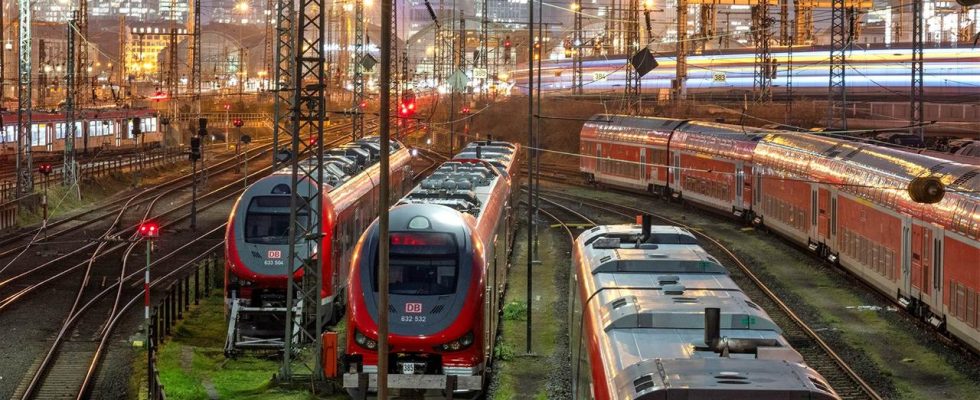According to Ifo boss Fuest, the ongoing labor disputes on the railways and in air transport are putting a further damper on the ailing German economy. How great is the damage to the overall economy?
The strikes at Deutsche Lufthansa and Deutsche Bahn have the potential to drag down the overall economy. In any case, Clemens Fuest, head of the Munich ifo Institute, came to this conclusion together Morning magazine from ARD and ZDF: “This is an additional burden that we actually don’t need.”
Fuest said: “The economy is shrinking, and if something like that happens, then suddenly parts are missing from production that cannot be delivered, or people cannot come to meetings, perhaps not to work.” Rail and air traffic are systemically important areas. “That’s why you have to consider whether everything is still proportionate.” Fuest suggested stricter rules such as longer notice periods for strikes.
How much is the rail strike costing the economy?
However, Fuest did not provide specific figures on how the strikes could affect Germany’s gross domestic product (GDP) and thus the country’s prosperity. His colleague Michael Grömling from the employer-oriented Institute of German Economics (IW) is completely different. Grömling gave a figure that was often quoted in previous strikes: 100 million euros – that’s how much a nationwide strike day in train traffic is supposed to cost.
But how does Grömling come up with this handy sum? The economic researcher names three different areas that are suffering from the strikes. First of all, there are the costs for Deutsche Bahn itself, which would be around 20 to 30 million euros. In addition, there are losses in private consumption and services, for example fewer occupied hotel beds and lower sales from train station shops.
Grömling assumes that “calculated very cautiously” around one percent of consumption will be lost nationwide – that corresponds to an amount of 30 million euros. The consequences for supply chains are more difficult to quantify; Here too, the IW expert assumes costs of around 30 million euros. That’s a total of 90 million euros – or rounded to the often quoted 100 million euros.
Economist hardly sees Prosperity effects
However, other experts are not quite as pessimistic. According to Handelsblatt, economist Sebastian Dullien from the employee-oriented Hans Böckler Foundation doubts that the strikes will have any effect at all on economic performance. The economy is flexible and can compensate for failures. After all, there is currently no work being done on the attack anywhere.
According to Dullien, only one strike in German history has had a measurable effect on the economy: that of the metal workers in 1984. Fewer cars were actually produced back then.
In 1984, workers in the metal industry went on strike for the 35-hour week.
The longest strikes ever
In 1984, workers in the West German metal industry went on strike for almost seven weeks – demanding a reduction in working hours from 40 to 35 hours a week. This strike was one of the longest and toughest in German collective bargaining history.
By far the longest strike in the history of unions in the Federal Republic took place in the printing industry in 1994. Ver.di’s predecessor union IG Druck fought for two percent higher wages over 117 days. Close behind at 114 days, or a good 16 weeks: the 1956 strike in the metal industry. At that time it was about continued payment of wages in the event of illness.
The strike in the metal industry in 1956 was the second longest in German union history.

